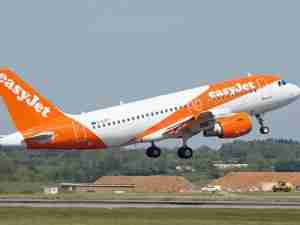Secretary LaHood told the audience of senior executives from every area of the global air cargo supply chain: 'We are committed to your industry ' because what's good for air cargo is good for the US economy. A strong air cargo industry expands international trade and contributes to job creation and prosperity at home. We will continue to work hand-in-hand with you, our partners here at home and abroad.'
Air cargo, a $60 billion industry that delivers 35% of world trade by value - worth over $5 trillion a year - has struggled to find recognition with lawmakers and politicians. The International Air Cargo Association (TIACA), organizer of the forum, has been working to change this, building closer ties with U.S Customs and Border Protection (CBP) and the Transportation Security Association (TSA) as well as key bodies such as the World Customs Organization (WCO) and the International Civil Aviation Organization (ICAO). Secretary LaHood reassured the industry, the U.S. government is now committed to helping it achieve its goals, because of its vital importance to both the economy and employment.
He said the DOT was doing its part to build a transportation system that supports President Obama's export goal. This includes the recent creation of a new Freight Policy Council, a high level and multi-modal internal body that will help to develop a national plan to improve freight movement. In addition, he said the new 'Moving Ahead for Progress in the 21st Century' transportation bill signed into law this summer by President Obama gives DOT $1.75 billion for its TIFIA loan program that can be put to work to improve the nation's intermodal freight network. In 2010, President Obama set out a five-year goal to double U.S. exports by 2015.
Air cargo now accounts for 31% of the total value of U.S. exports, Secretary LaHood pointed out, adding: 'In order to accomplish President Obama's goal, we need a thriving air cargo industry to help America's leading industries move their products to market quickly and efficiently. We are strengthening the movement of freight across land, air and sea.'
He added that the DOT is working hard to secure 'additional market openings for U.S. cargo companies around the world, and we are continuing to help the cargo industry realize the full benefits of this market access around the globe.'
Noting that the industry still faces many challenges surrounding customs and cargo security, he also called on other governments to open up markets. 'We know that some foreign governments are still practicing protectionism in their markets, to the detriment of many. But we will continue to work hand in hand with you, our partners here at home and abroad to ensure that our dynamic and growing cargo industry continues to be a leader in the market, increasing global trade and creating jobs.'
TIACA's decision to hold its 50th anniversary event in Atlanta, where it staged its first ever air cargo forum in 1962, was welcomed by the Mayor of the city, Kasim Reed.
Mayor Reed noted the contribution air cargo makes to the economy, and added that the city had begun to welcome more manufacturers, especially in the auto industry, in part because of its strong air cargo connections. He pledged: 'I've made it a personal priority of my administration to make progress in the international air cargo arena. And we are going to make progress in that space every single day.'
In Atlanta alone, more than 19,000 direct and indirect jobs are related to air cargo operations. 'Hartsfield-Jackson airport remains a strong market for air cargo carriers and it underscores our commitment to the air cargo industry ' we are ready to be one of your strongest partners.'
Michael Steen, Chairman of TIACA, said: 'Collaboration is critical. Industry and governments










